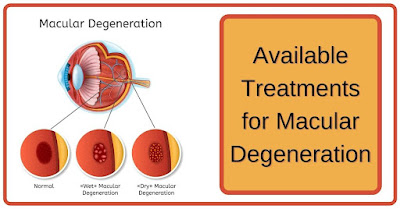Age-Related Macular Degeneration: Symptoms, Diagnosis, and Management
Age-related macular degeneration (AMD) is a common eye condition that affects older adults, gradually impairing central vision. As the leading cause of vision loss in individuals over the age of 50, it's crucial to recognize its symptoms, understand the diagnostic process, and explore available management options.
Symptoms:
AMD typically manifests in two forms: dry AMD and wet AMD. In dry AMD, which is more common, symptoms may include blurred vision, difficulty recognizing faces, and the appearance of drusen - yellow deposits beneath the retina. Wet AMD, although less prevalent, is more severe and can lead to rapid vision loss. Symptoms of wet AMD may include distortion or waviness in straight lines, sudden loss of central vision, and the perception of dark spots.
Diagnosis:
Early detection is key in managing AMD effectively. Regular eye examinations are essential, especially for individuals over 50 or those with a family history of the condition. During an eye exam, an ophthalmologist may perform various tests, including a visual acuity test, dilated eye exam, and imaging tests such as optical coherence tomography (OCT) or fluorescein angiography. These tests help in assessing the extent of macular degeneration and determining the appropriate course of action.
Management:
While there is no cure for AMD, several treatment options are available to slow its progression and manage symptoms. For dry AMD, interventions may include nutritional supplements containing vitamins and minerals such as vitamin C, vitamin E, zinc, copper, and antioxidants like lutein and zeaxanthin. Lifestyle modifications such as quitting smoking, maintaining a healthy diet rich in leafy greens and fish, and protecting the eyes from UV radiation may also help.
In cases of wet AMD, treatments aim to inhibit the growth of abnormal blood vessels beneath the retina. Anti-VEGF (vascular endothelial growth factor) injections are commonly used to block the activity of this protein, reducing leakage and preventing further vision loss. Other treatment modalities, such as photodynamic therapy or laser surgery, may be recommended in certain situations.
When it comes to managing AMD, choosing the right healthcare provider is paramount. Eyecure Hospitals in Secunderabad stands out as a leading eye clinic, offering comprehensive services for the diagnosis and treatment of various eye conditions, including AMD. With a team of experienced ophthalmologists, state-of-the-art diagnostic equipment, and a patient-centered approach, Eyecure Hospitals provides personalized care tailored to each individual's needs.
Whether it's regular eye screenings for early detection or advanced treatments for AMD management, Eyecure Hospitals prioritizes the visual health and well-being of every patient. With a commitment to excellence and a track record of successful outcomes, Eyecure Hospitals is the go-to destination for quality eye care in Secunderabad and beyond.
Age-related macular degeneration is a progressive eye condition that requires vigilant monitoring and appropriate management. By understanding its symptoms, undergoing timely diagnosis, and seeking expert care from reputable institutions like Eyecure Hospitals, individuals can preserve their vision and enjoy a better quality of life despite AMD's challenges.




Comments
Post a Comment